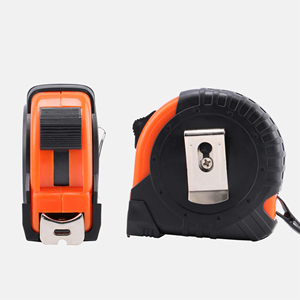Introduction to Measurement
Measurement is an essential process used across various industries to quantify physical properties and ascertain dimensions, sizes, weights, and other characteristics. From construction to health care, measurement plays a crucial role in ensuring accuracy, efficiency, and quality. Understanding different types of measurement tools and techniques can elevate business practices and enhance operational outcomes.
Types of Measurement Tools
Measurement tools are diverse and designed for specific applications. The classification of measurement tools can be based on their functions, applications, and precision levels. Here are the main types:
- Linear Measurement: Rulers, measuring tapes, and calipers are commonly used for measuring length and width.
- Area Measurement: Devices such as laser distance meters and planimeters are used to determine the area of surfaces.
- Volume Measurement: Instruments like graduated cylinders and volumetric flasks help in calculating the volume of liquids and solids.
- Weight Measurement: Digital scales and balance scales provide precise weight measurements critical in retail and food services.
- Temperature Measurement: Thermometers and infrared sensors are widely used in laboratories, kitchens, and industrial processes.
Applications of Measurement
The applications of measurement span across multiple sectors, contributing to their efficiency and accuracy. Here are some key areas where measurement is pivotal:
- Construction and Engineering: Accurate measurements are vital during planning and building phases, ensuring safety and compliance with regulations.
- Healthcare: Precise measurements of doses and medical parameters (e.g., blood pressure, temperature) are essential for patient care and medical research.
- Manufacturing: Quality control relies on exact measurements of components to ensure they meet specifications and perform as expected.
- Cooking and Food Production: Accurate measurements of ingredients are crucial for consistency and taste in food preparation.
- Education: Measurement fosters hands-on learning in scientific experiments and practical mathematics.
Advantages of Accurate Measurement
Employing accurate measurement methods offers numerous advantages that can enhance business operations. Here are some benefits:
- Improved Quality Control: Adhering to precise measurements ensures that products meet desired standards, enhancing customer satisfaction.
- Cost Efficiency: By minimizing errors through accurate measurements, businesses can reduce waste and lower costs associated with rework or material loss.
- Enhanced Safety: In construction and manufacturing, accurate measurements can prevent accidents and ensure structural integrity.
- Time Savings: Using modern measurement tools speeds up the measurement process, allowing for quicker project completion and higher productivity.
- Data Accuracy: Accurate measurements provide reliable data that can lead to insightful analysis and informed decision-making.





















































































































































































































